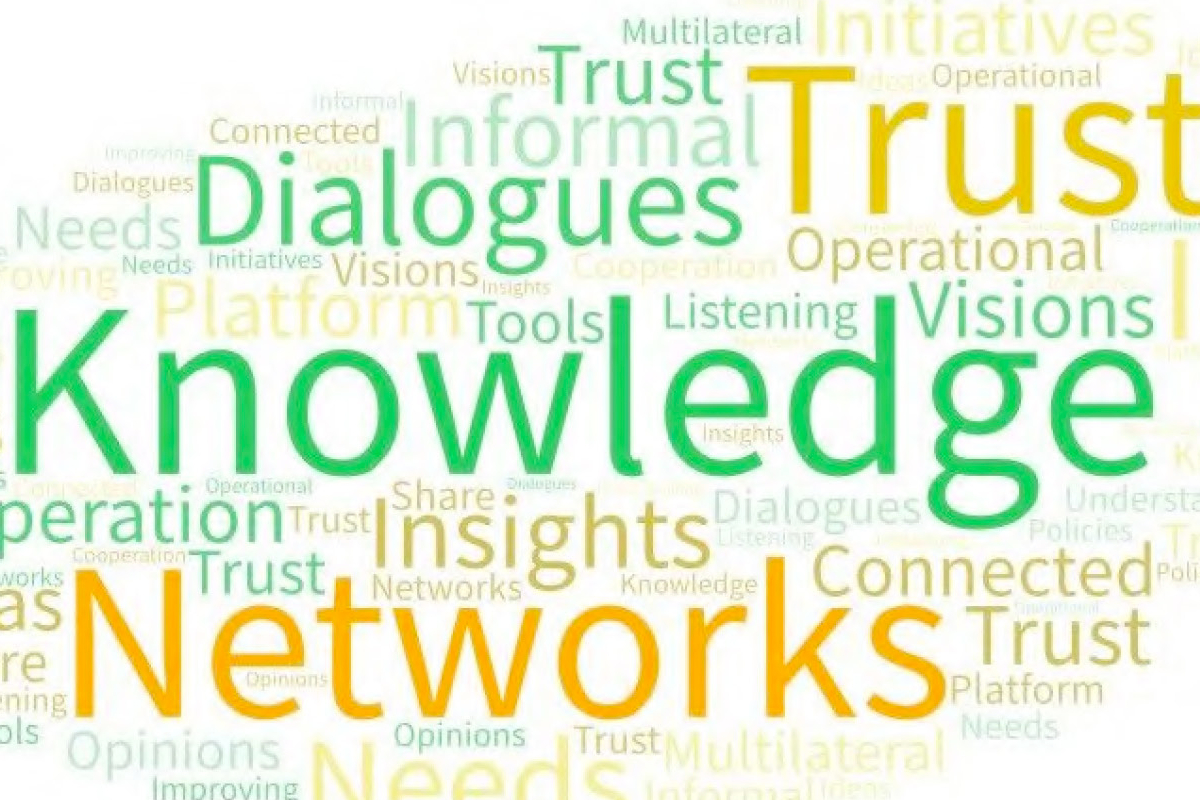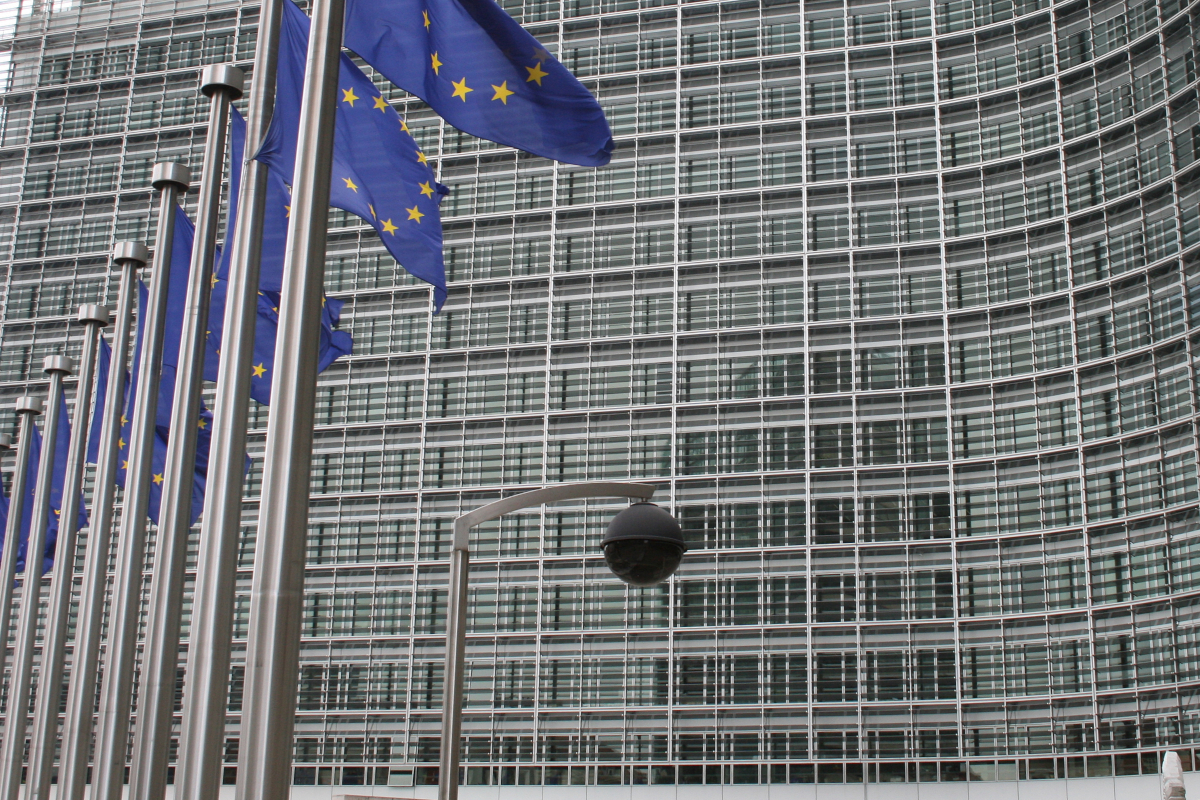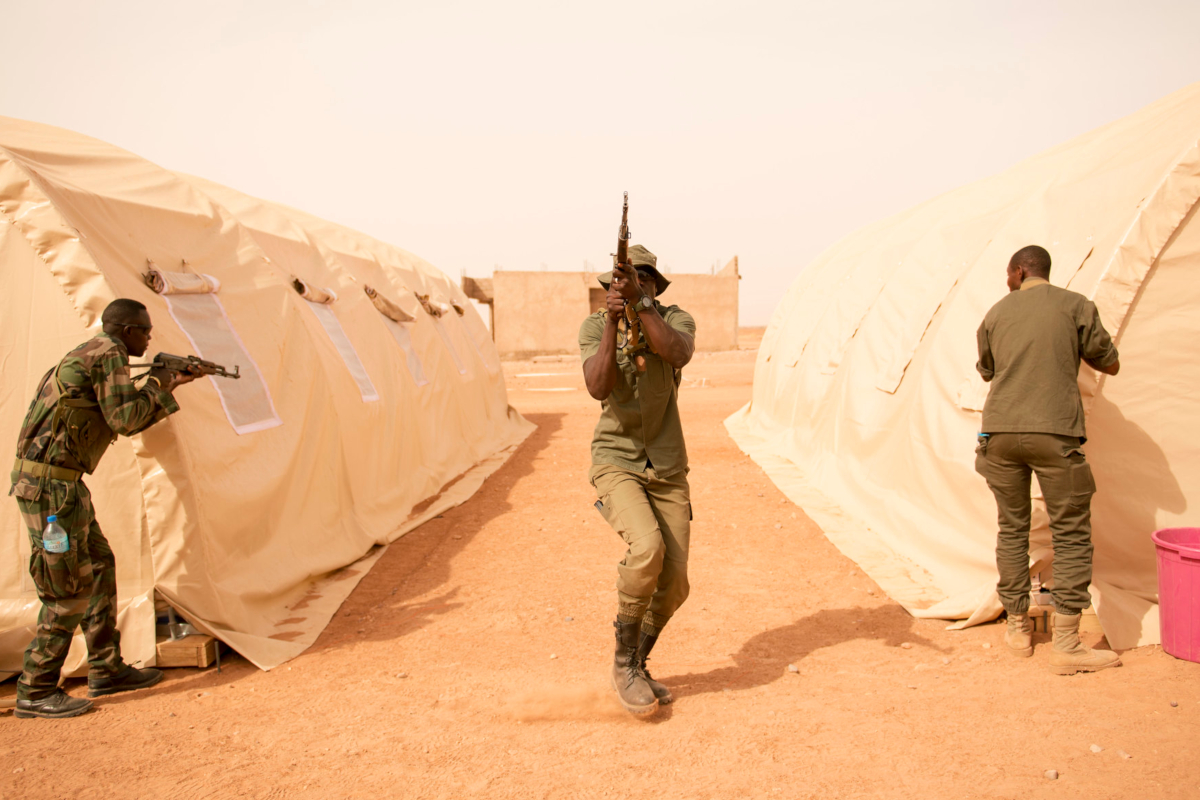External migration control efforts spawn sub-groups and action plans
Topic
Country/Region
13 September 2022
Various sub-groups and action plans have emerged from the various 'migration dialogues' that have been set up over the last decade, such as the Khartoum Process, the Rabat Process and the Budapest Process. This includes cooperation on operational action. The 'dialogues' bring together EU member states along with other European, African, Central Asian and other states. A recent set of presentations given to a Council of the EU working group make no mention of democratic scrutiny or legitimacy.
Support our work: become a Friend of Statewatch from as little as £1/€1 per month.

The document (pdf) is made up of presentations recently given to the Council of the EU Working Party on External Aspects of Asylum and Migration (EMWP) on some of the many 'migration dialogues' steered by European states.
The presentation on the Budapest Process suggests that it has spawned an array of sub-groups and initiatives.
For example, the Community of Law Enforcement Practitioners (COLEP) platform is:
"...meant to serve as a means for Budapest Process countries to engage in peer to peer exchange - via study visits, capacity building, etc.-, quick data and intelligence sharing, and to serve as a catalyst for bilateral/multilateral agreements on operational-level law enforcement cooperation."
Participation is "non-binding and voluntary; outputs are based on mutually beneficial exchange."
At the first meeting on 20 April 2022:
"The adverse impact of the situation in Afghanistan was outlined. The need to address irregular migration from Afghanistan to neighbouring countries and along the routes was made clear, as increasing use of irregular migration channels was leading to occurrence of more smuggling and trafficking."
And:
"The Terms of Reference of COLEP were endorsed by the participants with the observation that study visits should be minimised in favour of other collaboration methods."
There are also "Regional Working Groups, - namely the Silk Routes, the Black Sea and the South East Europe - in order to provide a space for each region to tackle specific topics of concern and interest."
These groups convened at a "Joint Working Group Meeting" in North Macedonia in May, involving 70 participants from 21 countries.
The Khartoum Process
Germany will hold the chair in 2023, and has three priorities:
1. Strengthening dialogue concerning climate induced migration induced migration
2. Protection of Protection Internally Displaced People (IDPs)
3. Legal pathways for migration
The second slide asks: "Why does the Khartoum Process matter?"
The answer comes in three bullet points:
"Horn of Africa as a key region in the context of migration and mobility"; "Reflecting opinions from African partners in the decision-making process of NDICI-funding" (the Neighbourhood, Development and International Cooperation Instrument, the EU's development budget for 2021-27 that will devote substantial amounts of funding to immigration control); and "Forum for potential Action Plans in the region (e.g. Ethiopia)."
The other presentations cover:
- The Prague Process
- The Rabat Process
- A presentation by the International Centre for Migration Policy Development on "Regional Migration Processes Dialogues" (the ICMPD provides the secretariat for the "dialogues" covered in the presentations, as well as some others)
However, the ICMPD notes some of the other dialogues in place, as have been detailed in documents previously published by Statewatch.
Documentation
- Working Party on External Aspects of Asylum and Migration (EMWP) - presentations (Council doc. WK 10578/2022 INIT, LIMITE, 18 July 2022, pdf)
Further reading
- 9 June 2022: EU: Tracking the Pact: Externalisation instead of relocation as part of "voluntary solidarity mechanism"
- 24 May 2022: European Commission: Update on state of play of external cooperation in the field of migration policy
- 28 April 2022: Spain and Morocco renew security cooperation agreement linking organised crime and "irregular" immigration
- 14 September 2021: European Commission: suspend deportations to Afghanistan, but deport Afghans to other "third countries"
Our work is only possible with your support.
Become a Friend of Statewatch from as little as £1/€1 per month.
Previous article
EU to provide €80 million to Egyptian coast guard
Next article
€72 million for EU security and immigration mission in Niger
Spotted an error? If you've spotted a problem with this page, just click once to let us know.

